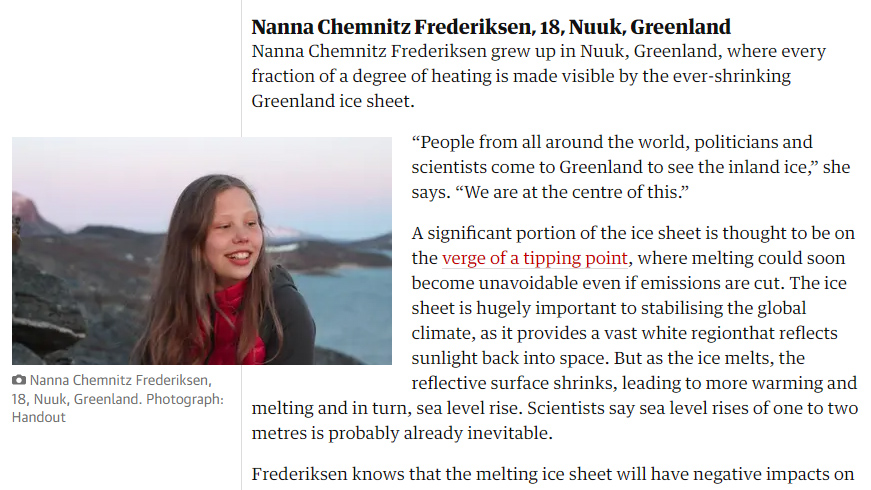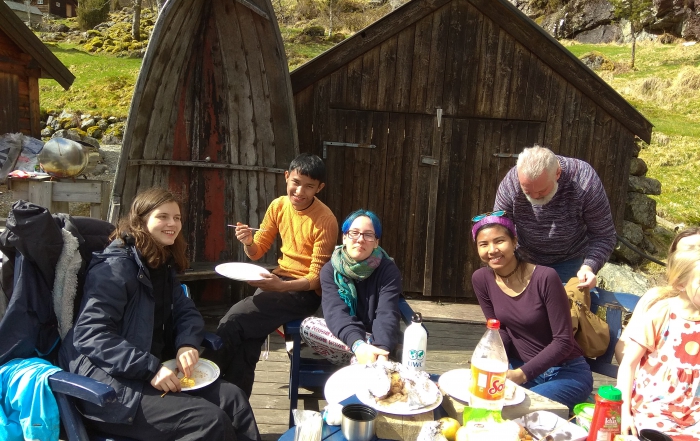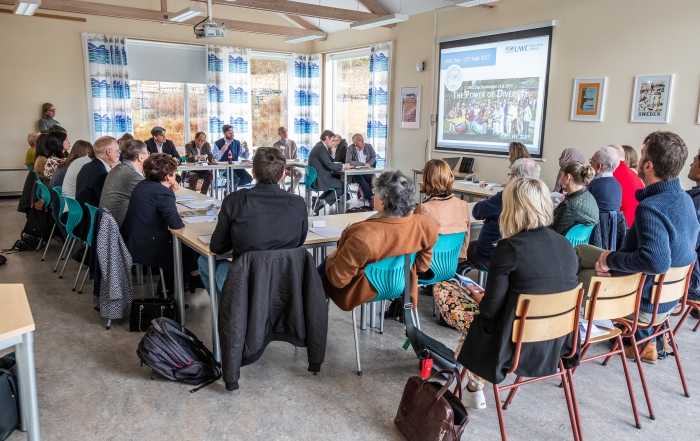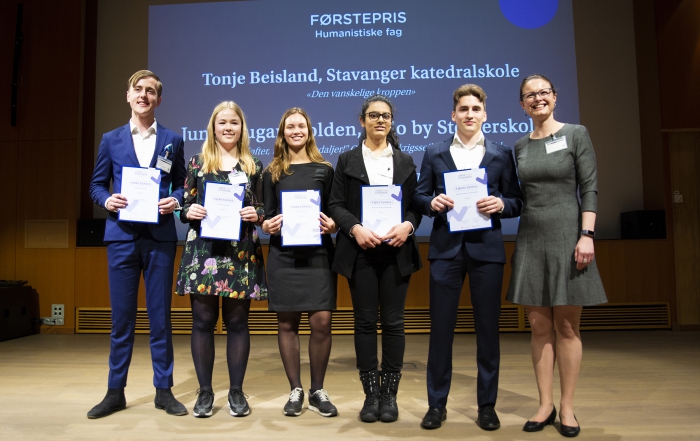“People from all around the world, politicians and scientists come to Greenland to see the inland ice,” she says. “We are at the centre of this.”
A significant portion of the ice sheet is thought to be on the verge of a tipping point, where melting could soon become unavoidable even if emissions are cut. The ice sheet is hugely important to stabilizing the global climate, as it provides a vast white region that reflects sunlight back into space. But as the ice melts, the reflective surface shrinks, leading to more warming and melting and in turn, sea level rise. Scientists say sea level rises of one to two metres is probably already inevitable.
Frederiksen knows that the melting ice sheet will have negative impacts on communities across Greenland, especially in northern settlements such as Qaanaaq where permafrost melting is destabilizing homes and roads and impacting how fishers and hunters operate.
But her real concern lies on the impact it will have globally. “I am not so scared of what the effects of the melting of ice in Greenland will be,” Frederiksen says, “It scares me what effect it can have for the rest of the world.”
Latest News
Coastal Protection Week
The first week of May in 2018 is Coastal Protection Week all over Norway when local communities clean the coast from plastic and other pollution. In Fjaler the clean-up happened a bit earlier and, just [...]
RCN Council Meeting
It was a pleasure to welcome the members of Council and other guests from Thursday 26th to Saturday 28th April 2018 for the annual UWC RCN Council meeting here on campus. Our Council members continue [...]
First Prize in Competition
Our second year Swedish student Herman (left in photograph) has been awarded 1st Prize in the Young Scientists Competition 2018 for humanities research. The title of his research is 'An Investigation of the Economic Consequences [...]




